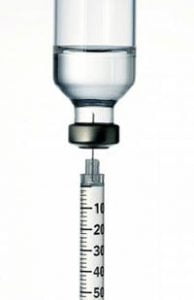 Collagen injectables will be gone from the U.S. cosmetic market by the end of the year due to changes in consumer trends, reports the latest issue of Dermatology Times.
Collagen injectables will be gone from the U.S. cosmetic market by the end of the year due to changes in consumer trends, reports the latest issue of Dermatology Times.
First Johnson & Johnson announced in late 2009 that it was discontinuing its collagen filler Evolence. Then, in January 2010, Allergan announced it would be discontinuing its collagen line of fillers—CosmoPlast, CosmoDerm and bovine products Zyderm and Zyplast—at the end of the year.
Allergan halted production of the products in 2009, but manufactured sufficient inventory to meet estimated market demand through the end of 2010, according to Kelly Lao, manager of corporate communications.
Lao says the discontinuation of their collagen products “is in response to declined market interest … since the introduction of hyaluronic acid dermal fillers like Juvéderm have become more popular.”
Dr. Seth Matarasso, a clinical professor of dermatology at the University of California School of Medicine, San Francisco, agrees with Lao’s assessment of the fillers market. “There is an overwhelming popularity of the new kid on the block: the hyaluronic acids. They have been embraced universally, and suddenly collagens aren’t as popular,” he says.
The popularity of the new hyaluronic acid wrinkle fillers, which include Restylane, Perlane, Juvéderm, Radiesse and Sculptra, is due to several factors:
- Longer-lasting results
- Appear to give a better fill
- Some contain lidocaine for less painful injections
Upcoming improvements of hyaluronic acids will provide more volume and contour-changing ability and the ability to fill deeper lines, according to Dermatology Times.
Inland Cosmetic Surgery offers a variety of the current dermal filler products, including Juvederm, Restylane, Perlane, and Radiesse. During your consultation, the center will help to select the best product and treatment for your wrinkle concerns.
The full story is available online: “Dermatologists prepare for departure of collagen from U.S. market.”




